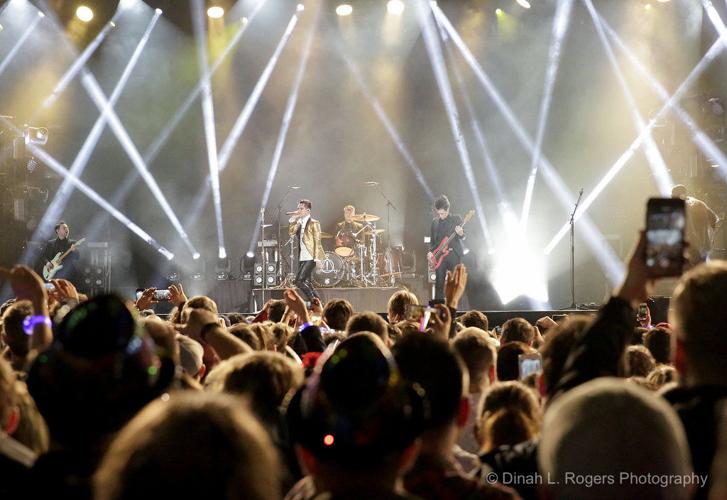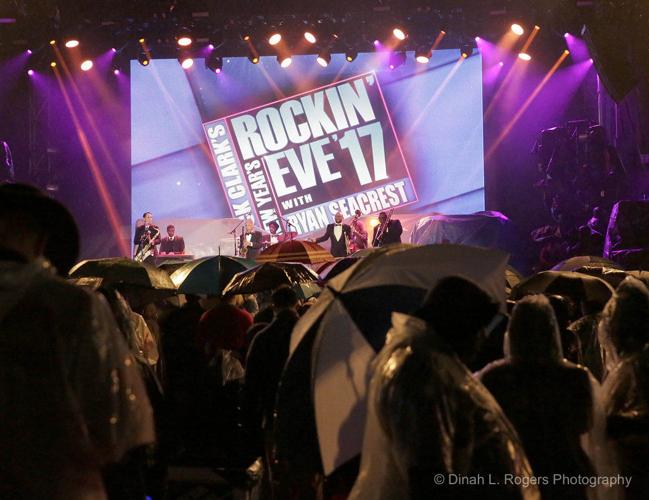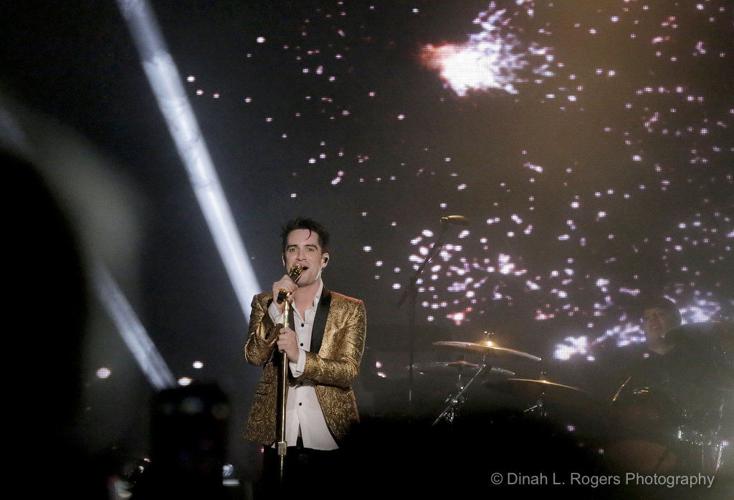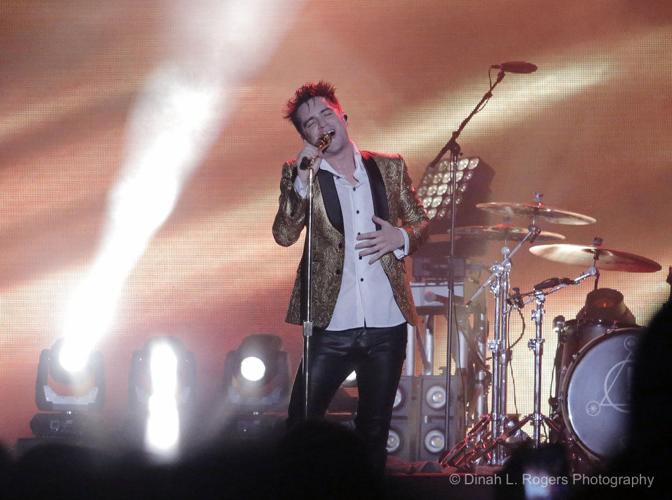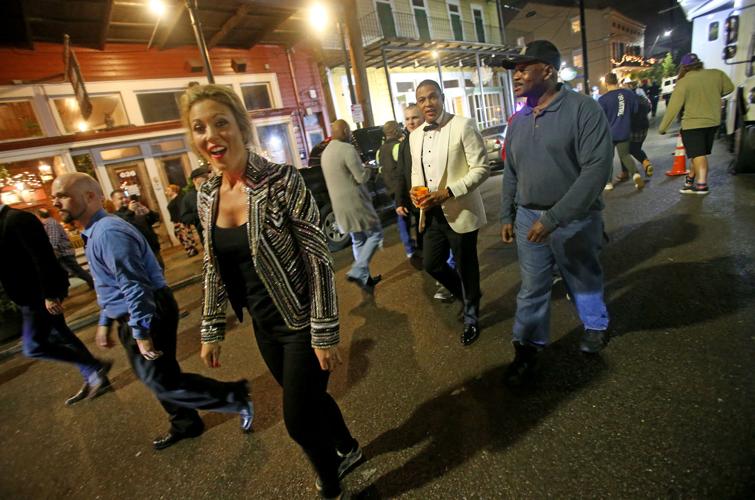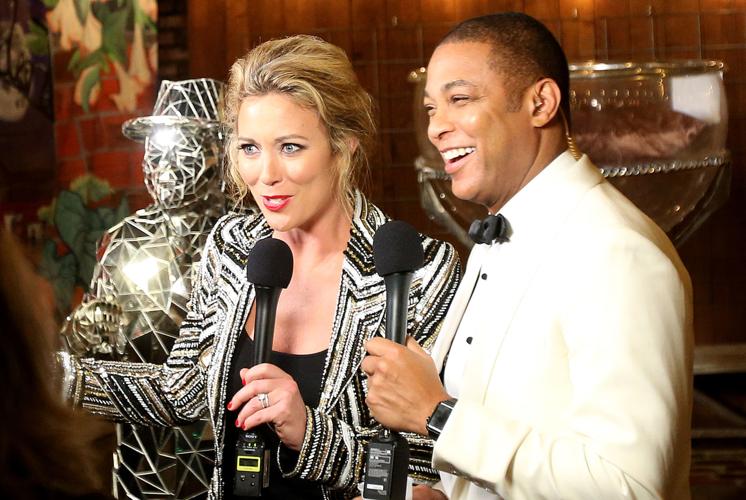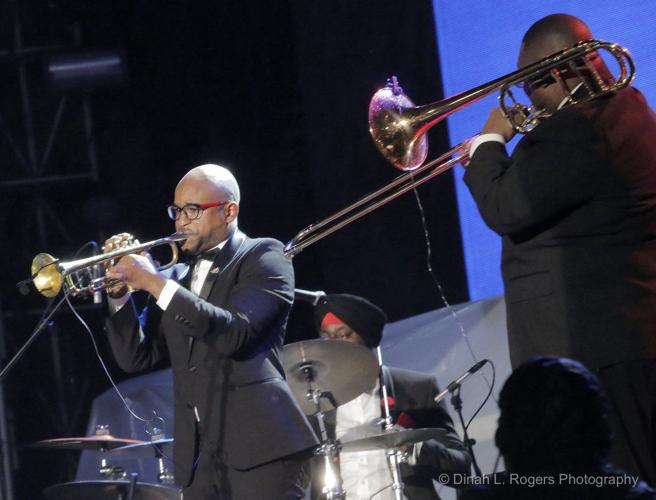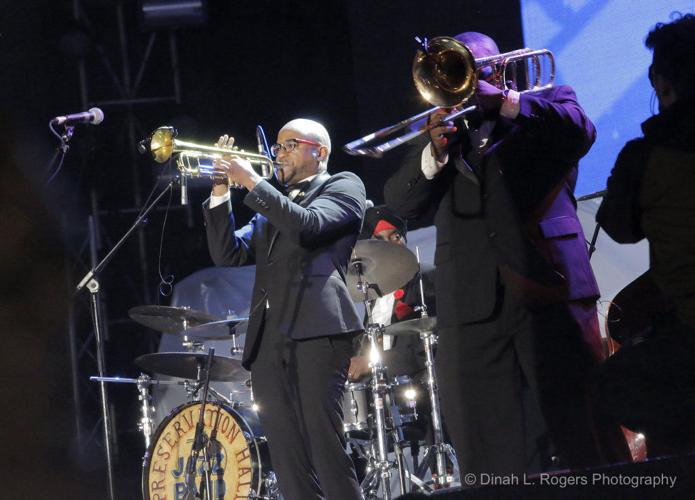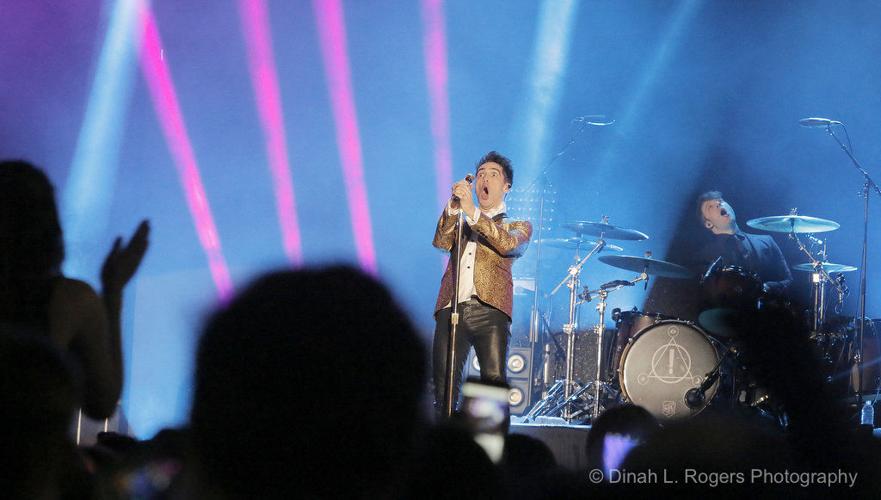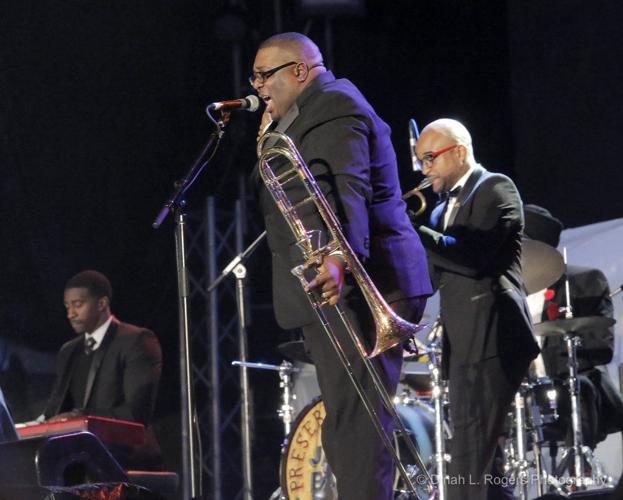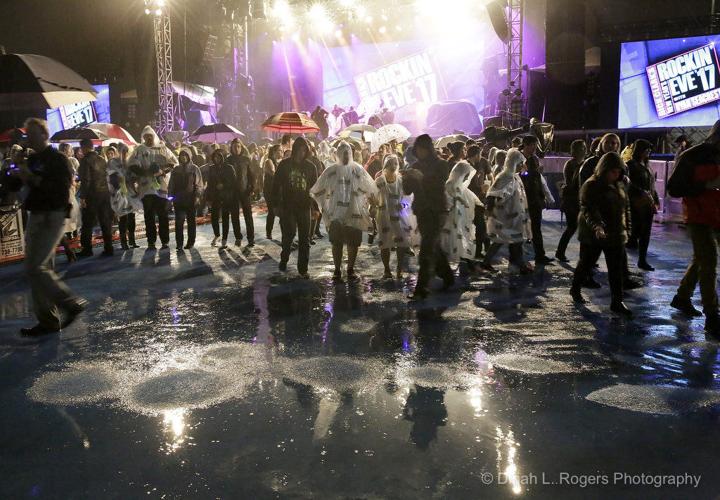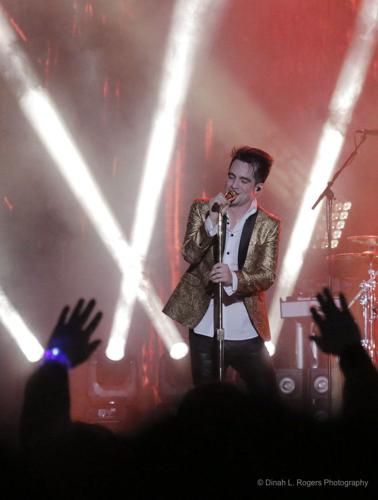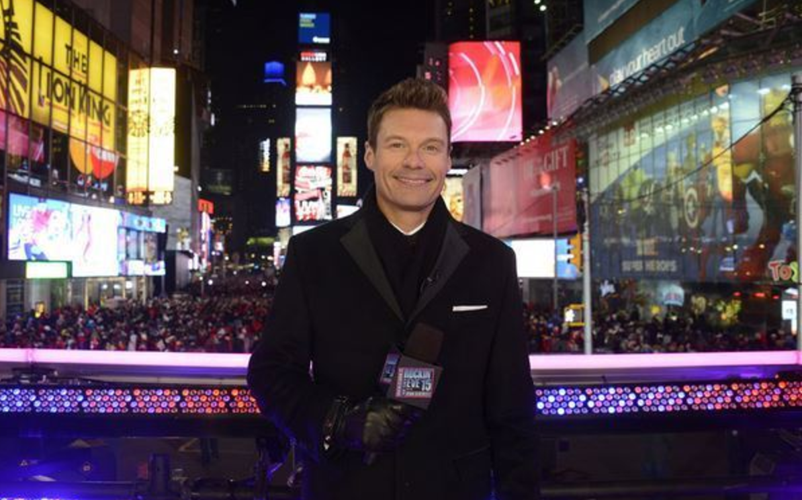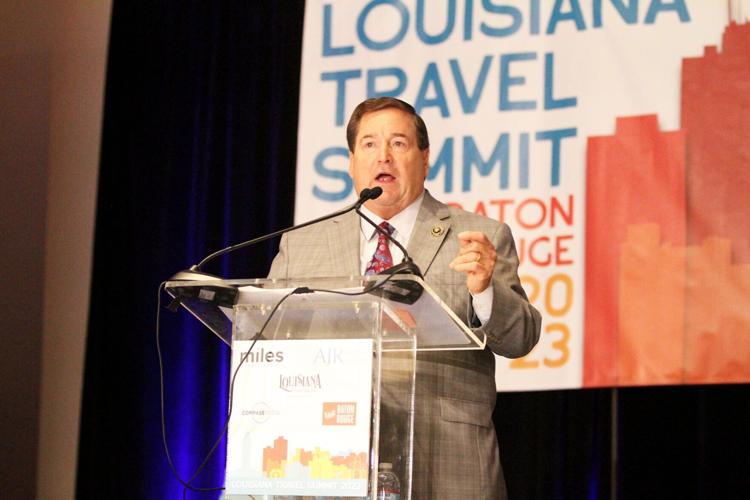New Orleans will usher in 2024 without the rest of the country watching.
For the first time in years, no major cable or network New Year’s Eve special will broadcast live from the Big Easy.
No drunk Don Lemon. No “Dick Clark’s New Year’s Rockin’ Eve.”
CNN's "New Year’s Eve Live with Anderson Cooper and Andy Cohen" has moved on, following the now-fired Lemon's boozy broadcasts from Frenchmen Street spanning 2016 to 2018. This year, CNN will count down the Central Time Zone from Austin.

CNN anchor Don Lemon poses for a selfie on Frenchmen Street on New Year's Eve, Monday, December 31, 2018. (Photo by Michael DeMocker, NOLA.com | The Times-Picayune)
And ABC's “Dick Clark’s New Year’s Rockin’ Eve with Ryan Seacrest,” typically the most-watched New Year’s Eve special, will not have a New Orleans countdown for the first time since 2016.
In addition to its main broadcast from New York City's Times Square, "New Year's Rockin' Eve" will visit Los Angeles, Las Vegas, South Korea and Puerto Rico. Puerto Rico assembled a lucrative financial package to lure the show two years ago, multiple sources said.
Public subsidies, according to several people affiliated with the New Orleans broadcast, is ultimately why the show isn't coming back this year — not rumored concerns about public safety.
“I can unequivocally say no one ever raised any questions about public safety,” said New Orleans & Company CEO and President Walt Leger III. “This was a business decision.”
A spokesperson for Dick Clark Productions, which produces the show for ABC, did not respond to an email inquiry.
Big names onstage
From its inception, the production costs of the "New Year's Rockin’ Eve” New Orleans segment were covered by subsidies from the city and state. How many times Seacrest would cut away to New Orleans during the national broadcast was negotiated in advance.
The inaugural New Orleans broadcast, on Dec. 31, 2016, featured Jason Derulo, Panic! At the Disco and the Preservation Hall Jazz Band performing in the Jax Brewery parking lot near Jackson Square. Actress Lucy Hale hosted the fleur-de-lis ball drop.

The Preservation Hall Jazz Band performs at the Allstate Sugar Bowl / Dick Clark's Rockin NYE concert in the French Quarter Saturday, Dec. 31, 2016. (Dinah Rogers Photo)
According to Lt. Gov. Billy Nungesser, his Office of Culture, Recreation and Tourism teamed up with the marketing organization New Orleans & Company, the Sugar Bowl and the game’s title sponsor, Allstate, to craft the incentive package that brought “Rockin’ Eve” to New Orleans. The Solomon Group, a locally based event company, handled the production, which cost more than $2 million.
Piggybacking on the Allstate Fan Fest, a free outdoor concert tied to the Sugar Bowl cut costs and helped attract bigger bands. The same bands and staging used for Fan Fest became part of the New Year’s Eve broadcast.
The state contributed $350,000 the first year, Nungesser said, then $1 million the next, when the New Orleans segment featured Imagine Dragons and Walk the Moon.
Nungesser lobbied for the telecast to include Louisiana artists and to promote regions outside New Orleans. Like the Louisiana-themed floats his office sponsors in the Macy’s Thanksgiving Day Parade and the Rose Bowl Parade, he believed “New Year's Rockin’ Eve” offered a solid return on investment.

An audience swathed in rain ponchos and wielding umbrellas exits the area as the Fan Fest closes down due to bad weather during the Allstate Sugar Bowl / Dick Clark's Rockin NYE concert in the French Quarter Saturday, Dec. 31, 2016. (Dinah Rogers Photo)
“There’s no better time to reach people,” Nungesser said. “They’re planning the next year (of vacations). It gets them excited about coming here. It drives them to the website.
“We wouldn’t have done it if it didn’t knock it out of the park.”
The 2018-into-2019 show presented country acts Florida Georgia Line and Maren Morris, followed the next year by contemporary R&B star Usher and singer-songwriter Sheryl Crow.
Then in 2020, the state withdrew its sponsorship following a disagreement between Nungesser and New Orleans Mayor LaToya Cantrell.
Dispute over Lauren Daigle
Nungesser wanted contemporary Christian pop singer and Lafayette native Lauren Daigle to host the city's segment. She was the face and voice of the state's tourism marketing campaign.

Lt. Governor Billy Nungesser gives an update from the Department of Culture, Recreation & Tourism at the Louisiana Travel Summit held at Crowne Plaza on Wednesday, August 30, 2023.
But Cantrell fired off a testy letter to Dick Clark Productions saying Daigle wasn’t welcome because of her participation in an unpermitted French Quarter religious rally in November 2020 that violated coronavirus restrictions.
Nungesser then proposed broadcasting Daigle from a riverboat moored across the Mississippi River from New Orleans. With Cantrell objecting to any participation whatsoever by Daigle, Dick Clark Productions opted to go with Big Freedia and PJ Morton. They performed without an audience because of COVID restrictions.
Just as he’d threatened to do, Nungesser withdrew the state's $500,000 sponsorship. The city used $500,000 from the New Orleans Tourism and Cultural fund, a discretionary marketing fund created as part of Cantrell’s infrastructure negotiations with the hospitality industry, to cover costs.
The New Orleans telecast never recovered from that dispute, COVID and the loss of the Allstate Fan Fest. For New Year’s Eve 2021 and 2022, the downsized New Orleans production featured emcee and Broadway actor Billy Porter as the main musical act.
Cantrell’s office was not approached by the show this year, press secretary John Lawson said.
New Orleans & Company did not contribute to the previous two “Rockin’ Eve” telecasts, Leger said, and wasn’t interested in participating this year.
“We made the decision that this level of investment could be utilized in other ways,” Leger said. “We didn’t feel the subsidy was appropriate under the circumstances. We determined that it was no longer the best use of the money to make this investment.”
The office of Culture, Recreation and Tourism hasn’t subsidized “Rockin’ Eve” since the Daigle dust-up. But Nungesser doesn’t rule it out, should the show return to New Orleans.
“I’d love to see it come back,” he said. “If we can do it the right way, it’s worthwhile. But you can’t let politics rule it. If we take the politics out of it and do what’s best for tourism, it has value.”
Even without a national New Year’s Eve telecast, the weekend will not lack buzz thanks to the Sugar Bowl. Hotel occupancy is projected to be around 95%, Leger said, due to hordes of Texas Longhorns and Washington Huskies fans.
Any implication that losing the Dick Clark broadcast "is an indication that New Orleans is not an amazing place to celebrate New Year’s Eve," Leger said, "is off base.”

